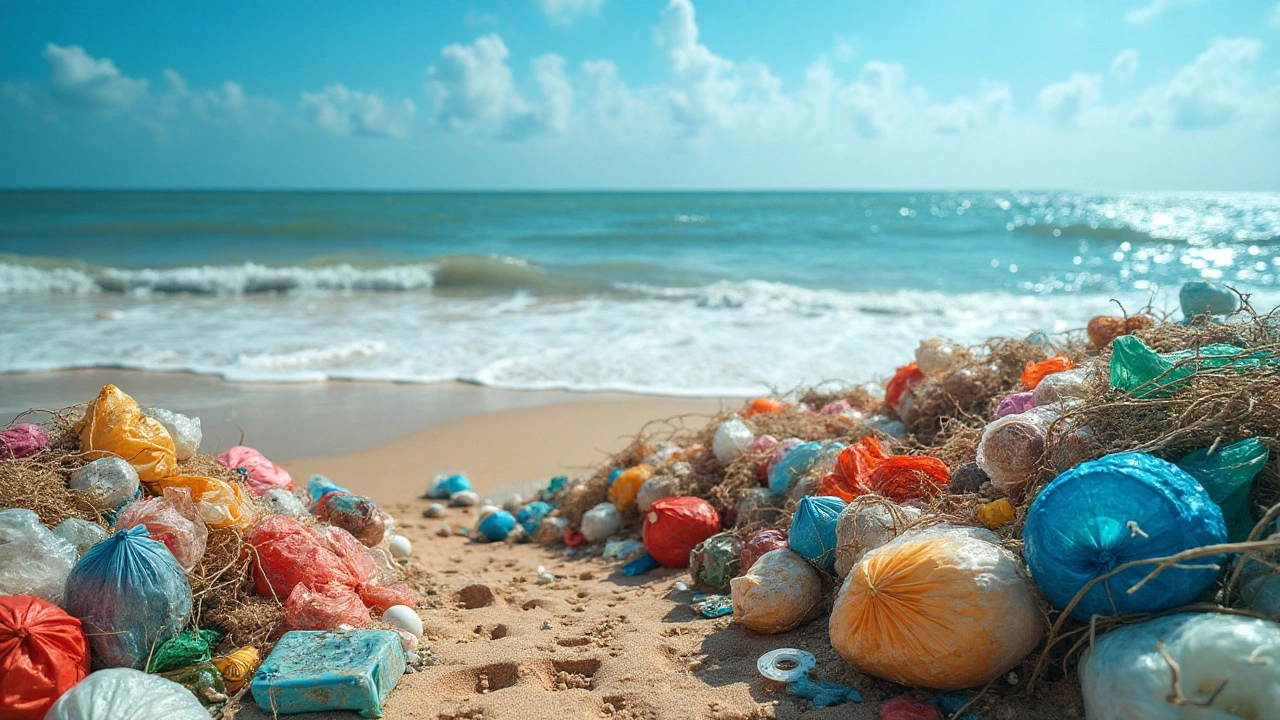Ocean Pollution
When talking about Ocean Pollution, the contamination of seas and oceans by harmful substances, waste, and activities that degrade marine ecosystems. Also known as Marine Pollution, it affects fish, coastlines, and even the food we eat.
One of the biggest drivers is Plastic Waste, discarded plastic that ends up in rivers and oceans, breaking down into tiny particles that harm wildlife. Plastic waste influences Ocean Pollution by adding chemicals and micro‑plastics to water, which then travel across the globe.
Another key player is the Manufacturing Industry, the sector that turns raw materials into finished goods, often generating waste and emissions. Manufacturing processes release marine debris, such as packaging scraps and chemical runoff, directly feeding the ocean’s trash pile.
We also need to consider Marine Debris, any solid material, like nets, bottles, or metal, that enters the sea and stays there for years. Marine debris is a visible sign of how everyday products end up far from their intended destinations.
Why It Matters for Manufacturers
Manufacturers now face pressure to cut the flow of waste into waterways. The link between production lines and ocean health means companies must track their supply chains, adopt recyclable packaging, and invest in cleaner technologies. Those steps not only reduce marine debris but also boost brand reputation and meet growing consumer demand for sustainable products.
Policies also shape the playing field. Governments introduce stricter discharge limits, extended producer responsibility rules, and incentives for circular economy models. When regulations tighten, firms that already embraced waste‑reduction find it easier to stay compliant and keep costs down.
From a business angle, tackling ocean pollution can open new markets. Eco‑friendly packaging, biodegradable materials, and take‑back programs are becoming profitable niches. Companies that innovate in these areas often see higher margins and stronger customer loyalty.
Our collection of articles reflects this broad picture. You’ll read about top product ideas for startups that prioritize low‑impact materials, see which countries lead the plastic waste rankings, and learn how pharma giants manage waste streams. There’s also a look at how manufacturing hubs like Bangalore fuel the electronics sector while grappling with environmental challenges.
All of these pieces tie back to the core issue: reducing the load of waste that ends up in the ocean. Whether you’re a founder, a seasoned exec, or just curious about how your daily choices affect marine life, the stories below offer practical insights and data‑driven advice.
Ready to dive deeper? Below you’ll find a curated set of posts that explore product innovation, waste statistics, industry profitability, and more—all framed by the pressing topic of ocean pollution.
